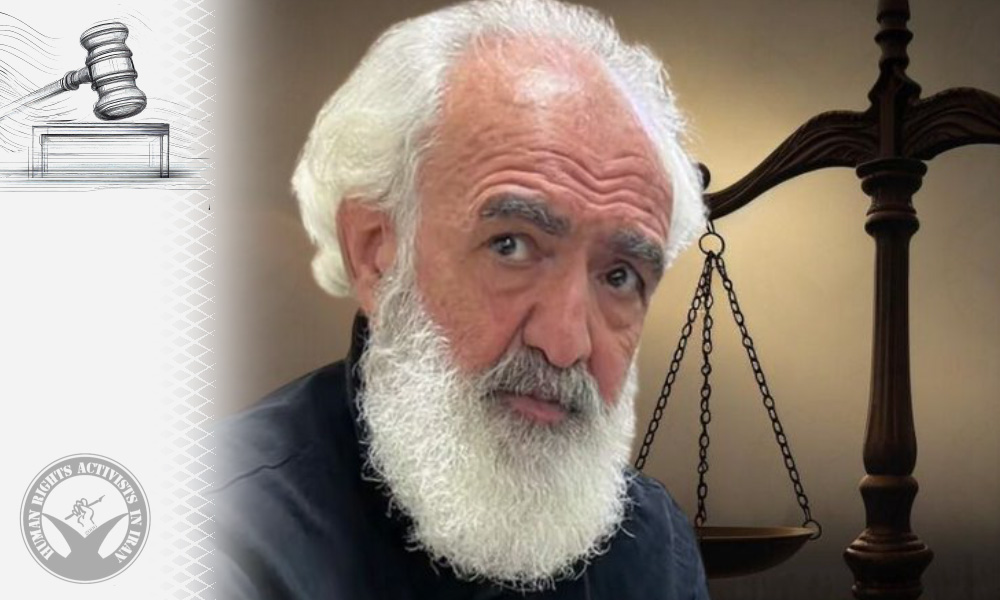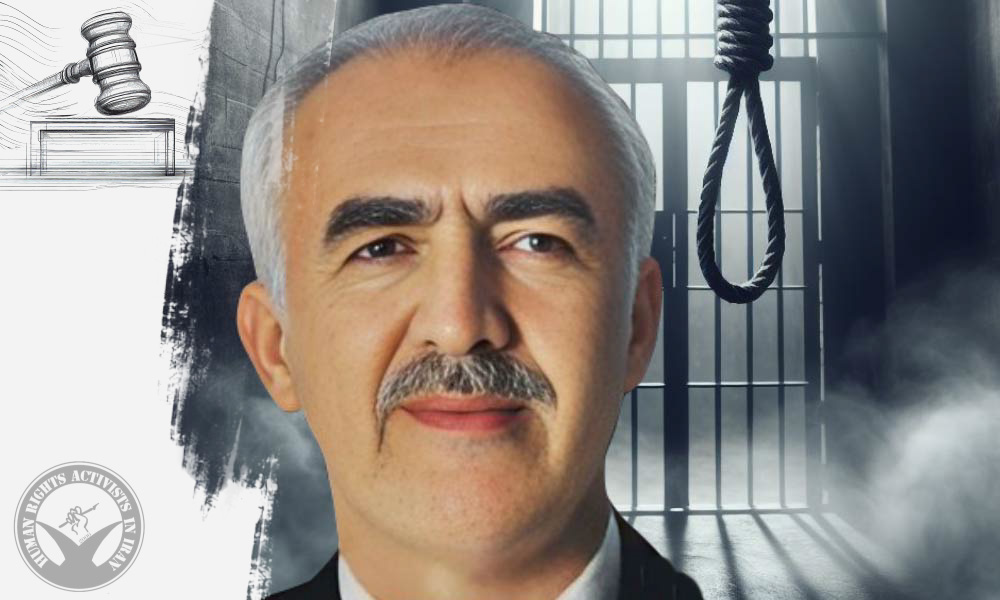HRANA News Agency – Following the Supreme Court’s overturning of Shahriar Bayat’s death sentence, the political prisoner has been resentenced by a parallel court to five years in prison and one year of unpaid service at the Kahrizak Charity Institute.
Based on information received by HRANA, the judge of Branch 10 of the Criminal Court One in Tehran Province ruled that Bayat deserved a sentence above the minimum for the charge of “blasphemy,” sentencing him to five years in prison. As a complementary punishment, Bayat was also ordered to perform one year of unpaid service at the Kahrizak Charity Institute.
The court session addressing Bayat’s charges was held on May 14 of this year.
Earlier, in April, Branch 39 of the Supreme Court overturned Bayat’s death sentence and referred the case to a parallel court for retrial.
On February 14, 2024, Bayat was sentenced to death by Branch 13 of Tehran’s Criminal Court One, with judges Saeed Sherafati and Ali Taghian issuing the majority verdict. The charges included sabb al-nabi (insulting the Prophet of Islam), insulting holy figures, and blasphemy—allegedly through sharing images and posts on social media.
However, at the same time, a minority opinion was issued by Judge Abolghasem Morad-Talab, who ruled in favor of a reduced sentence of six months in prison, citing Bayat’s expression of remorse.
It’s worth noting that an earlier decision by the Public and Revolutionary Prosecutor’s Office in Shahriar had initially dismissed the sabb al-nabi charge against Bayat. However, following an appeal by the Shahriar Prosecutor, the case was referred to the city’s Revolutionary Court. That court ultimately declined jurisdiction over the charge, leading the case to be transferred to Tehran’s Criminal Court One.
The issuance of a death sentence and the overall judicial process have raised serious concerns about inconsistencies and irregularities in Bayat’s case. The sentence was handed down just weeks after Bayat had been granted furlough.
Bayat, a political prisoner, was arrested at 4 a.m. on September 25, 2022, at his home in Shahriar by security forces amid the nationwide protests. He was initially transferred to the Greater Tehran Penitentiary and later moved to Ward 6 of Evin Prison.
On March 1, 2023, in a separate case, Bayat was sentenced by Branch 1 of the Shahriar Revolutionary Court to a total of 18 years in prison: One year for propaganda against the regime, two years for insulting the founder of the Islamic Republic and the Supreme Leader, five years for assembly and collusion against national security, ten years for forming and running an unlawful (virtual) group aimed at disturbing national security.
Of these, the ten-year sentence was deemed enforceable as the most severe, but following a request for sentence reduction, it was lowered to eight years and six months.
Shahriar Bayat, aged about 64, is a retired government employee, married, and a resident of Shahriar.






